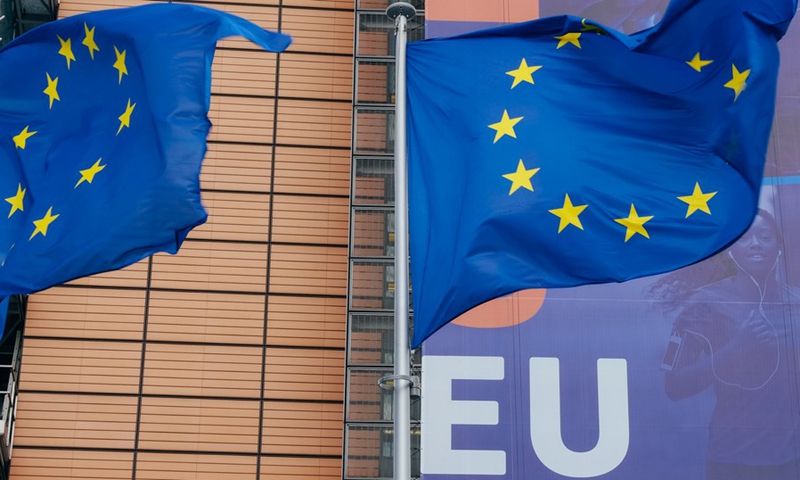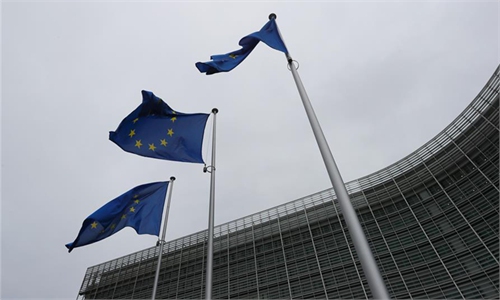COMMENTS / EXPERT ASSESSMENT
EU shouldn’t allow US to interfere in investment pact talks with China

Flags of the EU Photo: Xinhua
As China and EU are approaching the conclusion of talks relating to the high-level Comprehensive Agreement on Investment (CAI), the Biden team is trying to slow down the EU.Jake Sullivan, designated national security adviser to US President-elect Joe Biden, weighed in with a tweet this week referencing a report on the proposed EU-China investment accord. He urged early consultation with EU on "common concerns about China's economic practices."
EU officials conducting the negotiation are not expected to be affected by US attempts to derail what would be a historic agreement. What the US really worries about is EU getting ahead in China's vast and dynamic market, while the EU will definitely not share such a concern.
Even if Sullivan's 'common concern' refers to the "human rights" cliché as many western media outlets assume, such empty rhetoric will not be enough halt EU from making a major diplomatic breakthrough with a growing economic powerhouse that will deliver concrete economic benefits to EU countries.
Although the total investment and trade volume between China and EU is slightly less than that between EU and the US, China-EU two-way investments have enjoyed rapid growth in the past years as China makes continuous concrete efforts to open up its market and improve business environment.
More importantly, while the Trump administration was busy wielding the trade war stick and pushing its allies around, China and EU keep working together in defending multilateralism and open markets.
EU highly values the Chinese market. The signature of Regional Comprehensive Economic Partnership (RCEP) has agitated EU. To reach a high-level bilateral investment agreement before Biden's inauguration on January 20 is in line with EU's interests.
By taking the lead in opening the Chinese market, the EU will undoubtedly obtain early gains and advantages. Once the agreement is inked, EU investments can enter more areas of the huge Chinese market, such as new energy vehicles and the digital economy.
There is a competitive relationship between European and American investments in the Chinese market, and many American companies aspire to obtain these benefits before European companies could obtain.
Biden's wait-and-see approach on trade and investment issues has also lead EU to lower expectations for what his role on the international stage, which is another important reason for China and EU to move toward their longed goal to conclude the deal within this year.
With the continuous rise and evolution of digital commerce and global investment, trade rules now need continued reform to better meet the needs of the market and consumers. The EU-China investment agreement will be of high standard and will lead to a new round of the WTO negotiations at the global level.
If China and the EU can reach an agreement, it will play a role in the potential negotiation for China to join Comprehensive and Progressive Agreement for Trans-Pacific Partnership, which will push the US' early return to multilateralism.
The author is Jean Monnet Chair Professor and Director of European Studies at Remin University of China. bizopinion@globaltimes.com.cn



